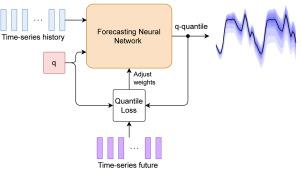Any-quantile probabilistic forecasting of short-term electricity demand: Fusing uncertainties from diverse sources
IF 15.5
1区 计算机科学
Q1 COMPUTER SCIENCE, ARTIFICIAL INTELLIGENCE
引用次数: 0
Abstract
Power systems operate under significant uncertainty arising from diverse and dynamic factors such as fluctuating renewable energy generation, evolving consumption patterns, and complex market dynamics. Accurately forecasting electricity demand necessitates advanced methodologies capable of capturing these multifaceted uncertainties. Our work develops any-quantile probabilistic forecasting framework, which enables the generation of forecasts for arbitrary quantile levels at inference time using a single trained model. This constitutes a substantial methodological advancement over traditional quantile regression techniques, which typically require training a separate model for each quantile or limiting predictions to a fixed set of predefined quantile levels. We show that integrating this framework into state-of-the-art neural architectures, specifically ESRNN and N-BEATS, yields superior distributional forecasting performance in the context of short-term electricity demand. Additionally, we develop the general Bayesian theory of cross-learning and link its latent objects with the elements of our architectures, providing a Fusion theory foundation for cross-learning from multiple power systems.
Empirical validation utilizing a comprehensive dataset of hourly electricity demand from 35 European countries showcases the efficacy of our approach, demonstrating superior predictive performance and enhanced quantile forecasting accuracy.

短期电力需求的任意分位数概率预测:融合不同来源的不确定性
电力系统在各种动态因素(如波动的可再生能源发电、不断变化的消费模式和复杂的市场动态)引起的重大不确定性下运行。准确预测电力需求需要能够捕捉这些多方面不确定性的先进方法。我们的工作开发了任意分位数概率预测框架,它能够在推理时间使用单个训练模型生成任意分位数水平的预测。与传统的分位数回归技术相比,这构成了一个实质性的方法进步,传统的分位数回归技术通常需要为每个分位数训练一个单独的模型,或者将预测限制在一组固定的预定义分位数水平上。我们表明,将该框架集成到最先进的神经结构中,特别是ESRNN和N-BEATS,可以在短期电力需求的背景下产生优越的分布预测性能。此外,我们发展了交叉学习的通用贝叶斯理论,并将其潜在对象与我们的体系结构元素联系起来,为来自多个电力系统的交叉学习提供了融合理论基础。利用来自35个欧洲国家的小时电力需求综合数据集进行实证验证,展示了我们方法的有效性,展示了卓越的预测性能和提高的分位数预测准确性。
本文章由计算机程序翻译,如有差异,请以英文原文为准。
求助全文
约1分钟内获得全文
求助全文
来源期刊

Information Fusion
工程技术-计算机:理论方法
CiteScore
33.20
自引率
4.30%
发文量
161
审稿时长
7.9 months
期刊介绍:
Information Fusion serves as a central platform for showcasing advancements in multi-sensor, multi-source, multi-process information fusion, fostering collaboration among diverse disciplines driving its progress. It is the leading outlet for sharing research and development in this field, focusing on architectures, algorithms, and applications. Papers dealing with fundamental theoretical analyses as well as those demonstrating their application to real-world problems will be welcome.
 求助内容:
求助内容: 应助结果提醒方式:
应助结果提醒方式:


